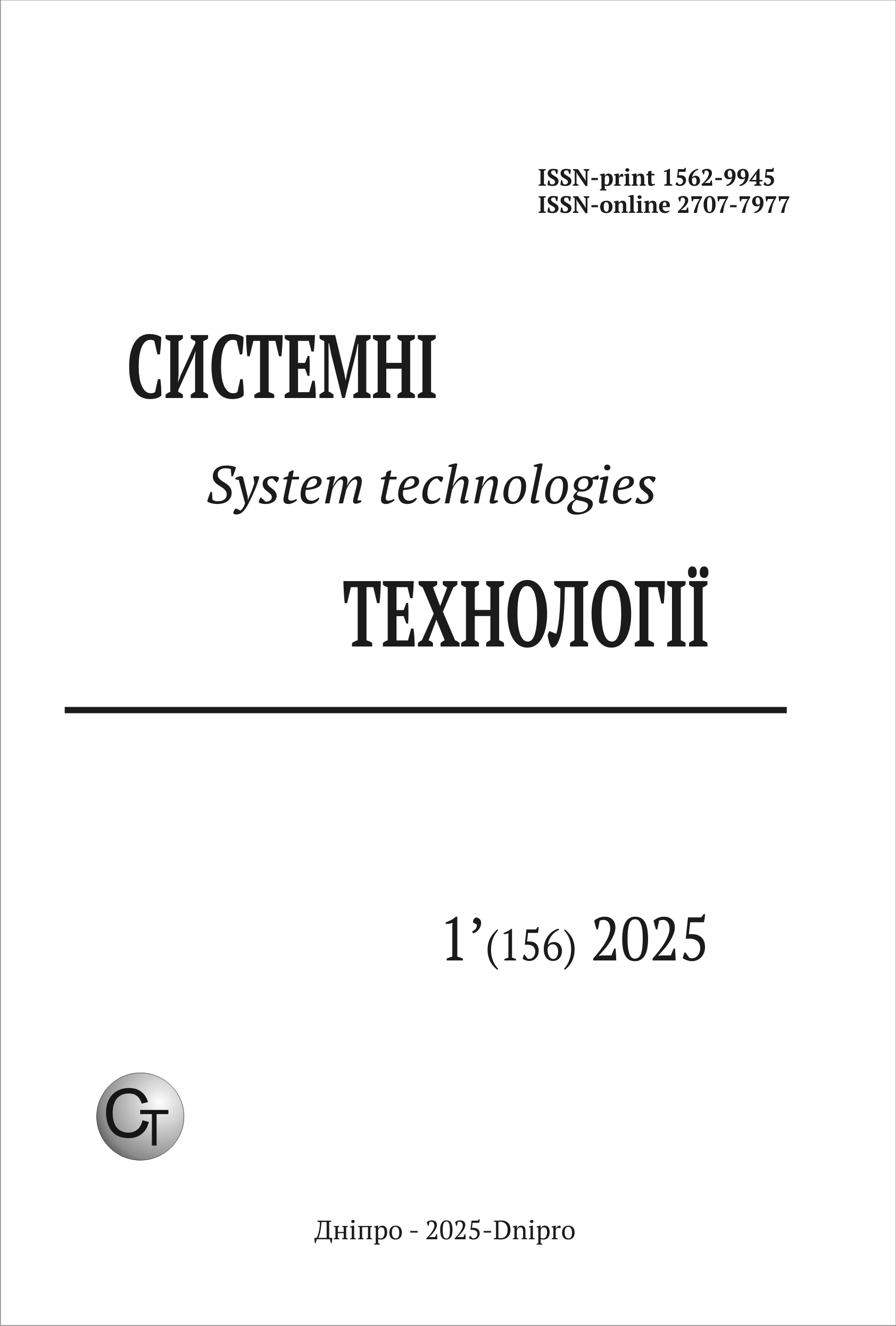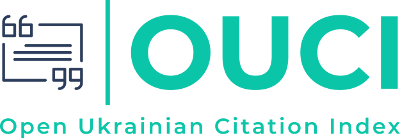Influence of interactive teaching methods on mathematical knowledge acquisition
DOI:
https://doi.org/10.34185/1562-9945-1-156-2025-15Keywords:
interactive learning, mathematical knowledge, mathematics, educational competencies, digital platforms, higher education institution, critical thinking.Abstract
The purpose of the study was to assess the expediency and effectiveness of using interactive methods in teaching mathematics in institutions of higher education. Special attention was paid to the analysis of such methods as group discussions, role-playing games, multimedia technologies and project activities. The results showed that these methods not only increase the level of assimilation of mathematical knowledge, but also contribute to the development of practical skills, critical thinking and the ability to analyze the material in depth. Within the framework of the research, the implementation of the method of competence ratios was justified, which allows to evaluate the effectiveness of interactive learning according to five key components: meaningful, practical, logical-structural, technological and informational. The application of this method contributes to the comprehensive analysis of the effectiveness of interactive approaches due to the use of extensive parameters. The evaluation is based on the measurement of such competencies as the ability to work in a team, the adaptability of knowledge to practical situations, analytical thinking and the ability to justify one's decisions. It was found that interactive methods increase students' motivation, reduce the level of stress during learning, and improve understanding of multi-format educational mathematical material. The results of the study substantiate the need for a wider implementation of interactive methods in teaching mathematics, thus forming recommendations for the professional use of digital platforms and multimedia technologies, which contribute to the individualization of the educational process and help students to learn the proposed educational material more deeply and qualitatively. The study confirms that the systematic use of interactive methods in higher education is an effective means of improving the quality of mathematics education and ensuring its compliance with modern professional requirements. The results of the study can be used to develop new curricula and courses in mathematics, create interactive manuals and digital platforms, which will optimize the process of learning and increase student success. The study is also valuable for educational reforms aimed at modernizing teaching and increasing its efficiency.
References
Vdovych, S.M. (2022). Osoblyvosti naukovoi diialnosti studentskoi molodi v zakladi vyshchoi osvity [Features of scientific activity of student youth in higher education institu-tions]. Naukovi zapysky maloї akademії nauk Ukrainy, 2(24). URL: http://doi.org/10.51707/2618-0529-2022-24-02.
Kalashnikova, S., Bazelyuk, N., Bazelyuk, O. (2023). Vdoskonalennya vykladannya u vyshchiy osviti: teoriya ta praktyka: monohrafiya [Improving teaching in higher education: theory and practice: monograph]. Kyiv: Institute of Higher Education of the National Acad-emy of Sciences of Ukraine. DOI: https://doi.org/10.31874/TE.2023.
Marynchenko, H. M., Motsak, S. I. (2021). Formuvannya krytychnoho myslennya studen-tiv pid chas dystantsiynoho navchannya [Formation of students' critical thinking during dis-tance learning]. International Scientific Journal "Grail of Science", 4, 463–467. https://doi.org/10.36074/grail-ofscience.07.05.2021.083.
Fonaryuk, O. V. (2020). Neformalʹna matematychna osvita: analiz veb-resursiv [Informal mathematical education: analysis of web resources]. Fizyko-matematychna osvita, № 4(26), 119-123.
Gurzhii, A. M., Glazunova, O. G., Voloshina, T. V. (2020). Tsyfrovyy navchalʹnyy kontent dlya systemy vidkrytoyi osvity: Suchasni informatsiyni tekhnolohiyi ta innovatsiyni meto-dyky navchannya u pidhotovtsi fakhivtsiv: metodolohiya, teoriya, dosvid, problemy [Digital educational content for the open education system: Modern information technologies and in-novative teaching methods in the training of specialists: methodology, theory, experience, problems]. Kyiv-Vinnytsia: "Planer" LLC.
Sikora, Ya., Skorobahatska O., Lykhodieieva, H., Maksymenko, A., Tsekhmister, Y. (2023). Informatization and digitization of the educational process in higher education: main directions, challenges of the time. Revista Eduweb, Vol. 17, no2, 244-256. DOI: https://doi.org/10.46502/issn.1856-7576/2023.17.02.21.
Yudina, S. P., Sukhomlynova, O. V., Velyka, A. M. (2024). Stratehiyi motyvuvannya stu-dentiv do uchasti u naukovykh proyektakh [Strategies for motivating students to participate in scientific projects.]. Naukovi innovatsiyi ta peredovi tekhnolohiyi, no 8(36), 1483-1494. doi.org/10.52058/2786-5274-2024-8(36)-1483-1494.
Drobyazko, S., Makedon, V., Zhuravlov, D., Buglak, Y., Stetsenko, V. (2019). Ethical, technological and patent aspects of technology blockchain distribution. Journal of Legal, Eth-ical and Regulatory Issues, Volume 22, Special Issue 2, 2019: URL: https://www.abacademies.org/articles/Ethical-Technological-and-patent-aspects-of-technology-blockchain-distribution-1544-0044-22-SI-2-365.pdf
Makedon, V. V., Makovetsʹka, A. O. (2023). Informatsiyne zabezpechennya ekonomich-noyi bezpeky pidpryyemstv v umovakh rynkovoyi nestabilʹnosti. [Information provision of economic security of enterprises in conditions of market instability]. Mizhnarodnyy naukovyy zhurnal "Internauka". Seriya: "Ekonomichni nauky", 12. Available at: https://www.inter-nauka.com/issues/economic2023/12/9477. https://doi.org/10.25313/2520-2294-2023-12-9477.
Hrybʺyuk, O. O. (2021). Imersyvni tekhnolohiyi u protsesi navchannya predmetiv mate-matychnoho tsyklu: stanovlennya novoyi osvitnʹoyi paradyhmy [Immersive technologies in the process of teaching subjects of the mathematical cycle: the formation of a new educational paradigm]. Pedahohichni nauky: teoriya ta praktyka, №4 (40), 35-45.
Makedon, V.V., Valikov, V.P., Koshlyak, E.E. (2020). Svitovyy rynok pratsi v koordyna-takh tsyfrovoyi ekonomiky [The global labor market in the coordinates of the digital econ-omy]. Academic Review, 1(52), 91-107. DOI: 10.32342/2074-5354-2020-1-52-9.
Konovalchuk, I. I. (2017). Proyektni tekhnolohiyi zdiysnennya innovatsiynoyi osvitnʹoyi diyalʹnosti [Project technologies for implementing innovative educational activities. Problems of education: coll. of science Proceedings], Vol. 87, 133–139.
Shelukhin, M., Kupriichuk, V., Kyrylko, N., Makedon, V., Chupryna, N. (2021). Entre-preneurship Education with the Use of a Cloud-Oriented Educational Environment. Interna-tional Journal of Entrepreneurship. Volume 25, Issue 6. URL: https://www.abacademies.org/articles/entrepreneurship-education-with-the-use-of-a-cloudoriented-educational-environment-11980.html
Maryenko, M., Kovalenko, V. (2023). Shtuchnyy intelekt ta vidkryta nauka v osviti [Arti-ficial intelligence and open science in education]. Physical and mathematical education, Volume 38, 1, 48-53. DOI: 10.31110/2413-1571-2023-038-1-007.
Panukhnyk, O. (2023). Artificial intelligence in the educational process and scientific research of students of higher education: responsible limits of AI content. Galician Economic Bulletin, Volume 84, No. 4, 202-211. https://doi.org/10.33108/galicianvisnyk_tntu2023.04.202.
Downloads
Published
Issue
Section
License
Copyright (c) 2025 System technologies

This work is licensed under a Creative Commons Attribution 4.0 International License.















